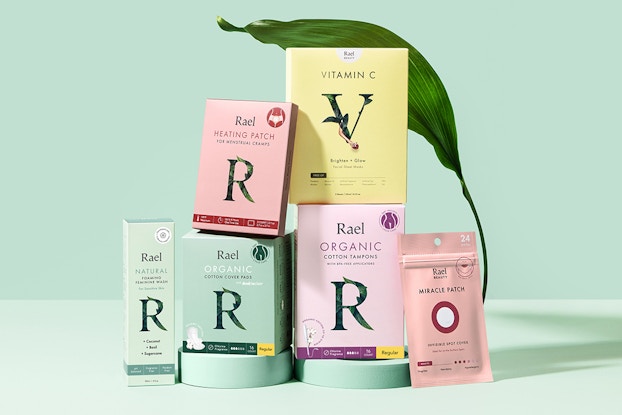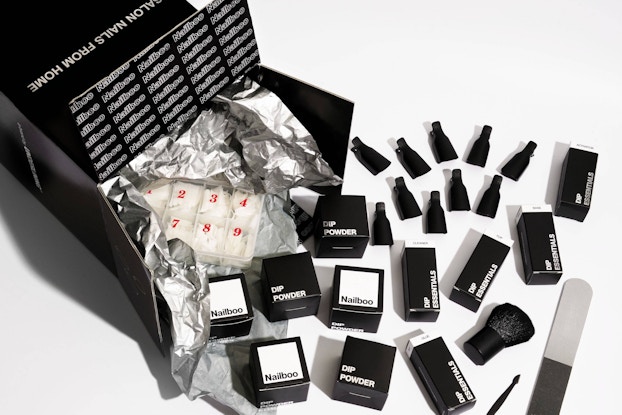
Why it matters:
- A generation of direct-to-consumer e-commerce brands is giving way to a new wave of startups launching with mass market retail partners in their sights from the very beginning.
- Three startups leveraged business assets including a well-structured sales team, positive online reviews, product innovation, and event marketing to scale to big retail and weather unexpected market shifts without too much disruption to internal culture, said executives from personal care startup Rael, The Plant Based Seafood Co., and manicure startup Nailboo.
- Consistency at every customer touchpoint is also key, startup executives said: Loyal customers want to make sure they continue to purchase the products they enjoy, while potential new shoppers should be able to recognize a brand or product both online and in stores.
Today, building a successful consumer brand often means breaking out of the DTC-only channel almost from the get-go. Startups Rael, The Plant Based Seafood Co., and Nailboo have all unlocked major growth via partnerships with third-party retailers, according to founders and executives from the brands, interviewed by CO—.
Personal care and feminine hygiene brand Rael launched in 2017 with both a DTC channel and a storefront on Amazon. Since then, the brand leveraged positive reviews online to land shelf placements with retailers including Target, Walmart, CVS, and Walgreens.

Interested in a small business membership?
Find out how the U.S. Chamber of Commerce can help your company grow and thrive in today's rapidly-evolving business environment. Connect with our team to learn how a small business membership can benefit your bottom line and help you achieve your goals.
The Plant Based Seafood Co. is quickly establishing itself in the crowded plant-based “meat” category with frozen plant-based seafood. Since launching in 2020, the company has quickly expanded its product offerings as well as its distribution via grocery chains and specialty markets nationwide, in addition to landing an investment from celebrity chef Tom Colicchio.
And Nailboo, which offers premium home manicure kits designed to rival salon quality, launched DTC in 2020. After establishing a network of loyal e-commerce customers, the brand recently announced its first brick-and-mortar partnership with 2,700 Sally Beauty stores across the U.S. and Canada.
In their own words, executives from the trio of startups share what it takes to scale into big retail while holding on to their brand essence.

Identify ahead of time where you can and cannot compromise as your business scales
Yanghee Paik, Co-founder and CEO, Rael
Since the very beginning of [personal care and feminine hygiene brand] Rael, we’ve been very keen on employing an omnichannel strategy. While we enjoyed building a direct relationship with our customers through DTC, we knew that the customer acquisition cost for DTC is very high and retail partnerships were essential in order for us to reach the mass market. Our revenue has grown nearly eight times over the past three years after partnering with retailers.
However, the organic and natural feminine care market was very nascent, so we were looking for a partner who could help us amplify our consumer education about ‘better for you, better for the environment’ product options and eventually provide a platform for us to execute our holistic cycle care approach by launching us in multiple sections of the store. It is difficult to fully control how your brand is presented while working with multiple third-party retailers to scale. We strive to keep our story coherent and consistent through our digital marketing efforts as well as product packaging and retail displays.
While we enjoyed building a direct relationship with our customers through DTC, we knew that the customer acquisition cost for DTC is very high and retail partnerships were essential in order for us to reach the mass market. Our revenue has grown nearly eight times over the past three years after partnering with retailers.Yanghee Paik, Co-founder and CEO, Rael
I believe it is important to have the internal team as well as the external partners, including retailers, truly understand the mission and values of the company so everyone can be aligned. While we’ve scaled significantly over the past few years, we didn’t compromise at all in terms of product quality, ingredients, performance, and ethical supply chain. As a company with a strong mission and purpose, we knew we couldn’t compromise on those essential qualities that made us successful in the first place. Brands should know which qualities and values they must stick with, even while scaling.
When we first expanded into a mass retailer, we redesigned our product packaging to make us stand out better in the crowded brick-and-mortar environment and ensure that we communicate our brand story and key product features through the packaging. We took a lot of time and effort to change our packaging, but it was a necessary step to evolve our brand into an omnichannel brand. We also revisited our pricing strategy to be more competitive, which ended up benefiting our customers, as we made the effort to be more accessible and affordable.
[Read: How Supply Chain Tech Helped 3 Growing Companies Drive Profitable Sales]

Focusing on ‘increasing our retail footprint while introducing ourselves to consumers on restaurant menus and college campuses’
Monica Talbert, Co-founder and CEO, Plant Based Seafood Company
We are fortunate to have a strong [plant-based seafood] brand and founder story that resonates with customers and retailers alike. Retailers are always looking for innovative, new products like ours, which helps us cut through the clutter.
We try to stay in the news as much as possible and grab the attention of third-party retail buyers. So far that strategy has worked well for us. Once you’ve made it on shelf, cultivating a strong relationship with the retailer is key in addition to showing them you are doing your part to stay top of mind for their customers.
Having a direct line to your customers, no matter how big or small you are, is critical. Social media is the best tool for staying connected and getting feedback, good and bad, in real time. Sharing, behind the scenes, the different aspects of your business is another great way to stay true to your roots, and customers love to see it and cheer you on.

There will always be sacrifices when you take a kitchen/benchtop [an idea that needs to be developed] recipe to mass production, but as long as your core values and guardrails are consistent, your customers will remain loyal. A typical benefit of mass production is price reduction which customers love, but also drives trial for new customers and markets.
The moment you hit retail shelves you have to be hyper focused on driving trial purchases and increasing [sales] velocity. Velocity is the number one metric that should be used when making decisions to expand further distribution and scale strategically. As we launch nationally, you can bet we will be focusing heavily on it.
Steadily increasing our retail footprint while introducing ourselves to consumers on restaurant menus and college campuses is where we will be focusing our efforts for the next few years. Product innovation is also very important and a major pillar in our growth model.
[Read: How 3 Buzzy Brands’ Biggest Growth Opportunities Lean Into Key Consumer Trends]

Putting the customer comes first via ‘product quality, customer support, social events, and private groups’
Raz Romanescu, Co-founder and CEO, Nailboo
Our core principles and beliefs revolve around putting the customer first always. Our product quality, customer support, social events, and private groups help facilitate a true community that cares and is loyal to the brand.
In order for us to successfully approach third-party retailers, we invested into building a rockstar retail sales team internally and partnered with some key contacts in the retail space that helped us navigate and open the right doors at the right times.

Certainly, some necessary changes need to be made to enter retail. It is a different game than DTC and certain optimizations need to be made in order to succeed. For example, oftentimes packaging, pricing and offerings need to change to fit the desired retail partners’ shelf space, margin requirements, etc.
We want our customers to be customers for life and have a very good experience when interacting with our brands. Our goal is to become an iconic and enduring brand that is synonymous with quality product and service. We want to be accessible to consumers everywhere and are building brands to survive the next 100-plus years.
CO— aims to bring you inspiration from leading respected experts. However, before making any business decision, you should consult a professional who can advise you based on your individual situation.
Follow us on Instagram for more expert tips & business owners’ stories.







